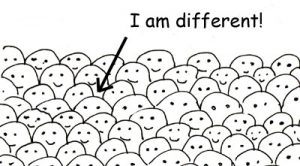
College application season leaves most students struggling with the dreaded personal statement. You may have written plenty of reports and essays during your academic career, but the personal statement is a different animal altogether. You have to talk about yourself, and that can be challenging.
Your personal statement will help your application if it shows that you’re a well-qualified individual and nicely suited for the program you’re applying to. Your personal statement will hurt your application if it’s poorly written or demonstrates a lack of academic focus. But never fear, Proofreading Pulse is here with tips for crafting a personal statement that will help you no matter where you’re applying.
Consider this: more than 34,000 people apply to Harvard University every year, according to the university’s newspaper, and the competition is even worse elsewhere. Remember that your audience is admissions committee members reading hundreds of applications. You need to set yourself apart from other applicants.
Get a free sample proofread and edit for your document.
Two professional proofreaders will proofread and edit your document.
 To do this, you need to think about what makes you someone the institution will want. Do you have something particularly interesting in your personal background? Have you overcome unusual obstacles? What sparked your interest in the field you want to study? Find one or two different aspects of your life story and focus on them.
To do this, you need to think about what makes you someone the institution will want. Do you have something particularly interesting in your personal background? Have you overcome unusual obstacles? What sparked your interest in the field you want to study? Find one or two different aspects of your life story and focus on them.
We see plenty of personal statements at ProofreadingPal, and far too often writers rely on clichés, which means it’s pretty much impossible to appear different from other applicants. However outstanding you are among your fellow applicants, but you won’t appear to be.
Take this fairly standard essay prompt from Common Application: “The lessons we take from failure can be fundamental to later success. Recount an incident or time when you experienced failure. How did it affect you, and what did you learn from the experience?”
Many people will respond to this with something along the lines of, “It was really hard, but I never gave up. I got knocked down, but I got up again. Never stop never stopping.” Resist this urge! Instead of trotting out phrases you’ve heard a hundred times, be as specific as possible about how you overcame failure.
Using anecdotes is an ideal way to set yourself apart and provide detail about personal experience. Before sitting down to write your personal statement, take time to think about a specific event of your life and jot down notes. Consider several possible stories from your past that might respond to the question in an interesting way, and then select the one that fits best.
Once you’ve written the anecdote, edit it to ensure that it’s as concise as possible. An otherwise good anecdote can be bogged down in too much detail. The admissions committee doesn’t need to know everything about your life. Focus on a short story that relates to your field of study and is directly related to the prompt.
A common mistake is to take half of a 500-word personal statement to lavish praise upon the college. The admissions committee already knows their school is great. They don’t need you to rehash facts from the website or tell them about your visit to campus.
Instead, discuss why you’re a good fit for the school and how both sides will benefit. Provide specific examples of how your skills, background, and personality are suited for the program you’re applying to.
Remember that admissions committee members are busy and have limited time. It’s your responsibility to impress on them that you’re a unique candidate who will help their school. That starts with writing a strong hook that holds the reader’s interest. It need not be particularly dramatic, but you should get to your point immediately.
Lastly, don’t forget to have trusted friends or family members read your personal statement and provide feedback. After all, who else knows better what makes you unique? For the final polish, consider sending it to us.
Chris R.
Get a free sample proofread and edit for your document.
Two professional proofreaders will proofread and edit your document.
Get a free sample proofread and edit for your document.
Two professional proofreaders will proofread and edit your document.
We will get your free sample back in three to six hours!